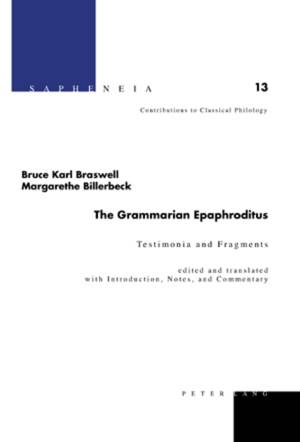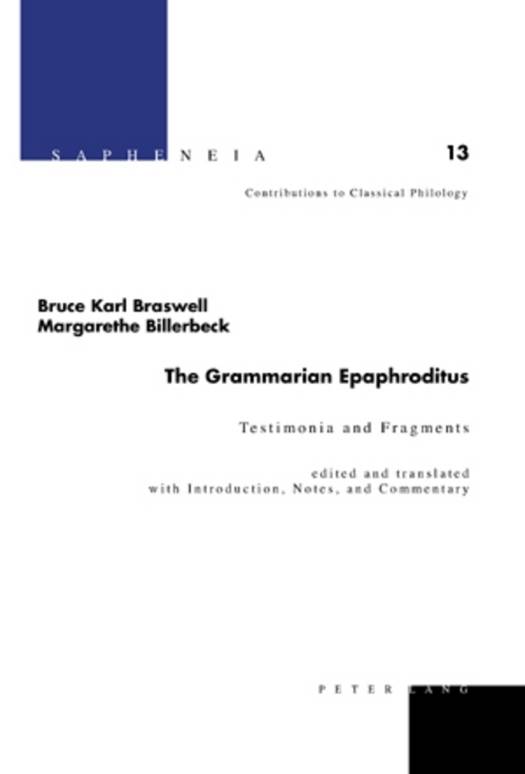
- Retrait gratuit dans votre magasin Club
- 7.000.000 titres dans notre catalogue
- Payer en toute sécurité
- Toujours un magasin près de chez vous
- Retrait gratuit dans votre magasin Club
- 7.000.0000 titres dans notre catalogue
- Payer en toute sécurité
- Toujours un magasin près de chez vous
111,45 €
+ 222 points
Description
The Greek grammarian Epaphroditus, trained in Alexandria and prominent as a teacher in Rome of the Neronian-Flavian era, continued the tradition of Hellenistic scholarship in his study of Homer, the Hesiodic Shield of Herakles, and the Aitia of Kallimachos as well as in his treatise on etymology and in the compilation of a glossary of unfamiliar words. Numerous fragments from these works have been preserved in the Ethnika of the sixth-century grammarian Stephanos of Byzantium, the scholia on Homer and other authors, and, notably, in Byzantine etymological lexica, not all of which are fully accessible in print. The present edition presents a critical text of the fragments within the broader context in which they have been transmitted. Each text is supplied with a critical apparatus and a list of the more important parallels. To make the edition more easily accessible to non-specialists an English translation has been given not only of the fragments but also of longer texts quoted in the notes, features which should be of use to specialists as well. After each fragment a short commentary summarizes the results. An extensive introduction presents the life, works, and scholarship of Epaphroditus and explains the reasons for the classification of the fragments. A concordance to the edition of Lünzner (1866), a full bibliography, and indices facilitate the use of the work. The aim of the edition has not only been to set the grammarian in his rightful place in the history of scholarship but to encourage further work in this neglected field by demonstrating its intrinsic interest and by explaining methods and technical terms which are often taken for granted in specialist works.
Edited and Translated with Introduction, Notes, and Commentary.
Edited and Translated with Introduction, Notes, and Commentary.
Spécifications
Parties prenantes
- Editeur:
Contenu
- Nombre de pages :
- 458
- Langue:
- Anglais
- Collection :
- Tome:
- n° 13
Caractéristiques
- EAN:
- 9783039114504
- Date de parution :
- 29-10-07
- Format:
- Livre relié
- Format numérique:
- Genaaid
- Dimensions :
- 145 mm x 222 mm
- Poids :
- 769 g

Les avis
Nous publions uniquement les avis qui respectent les conditions requises. Consultez nos conditions pour les avis.





